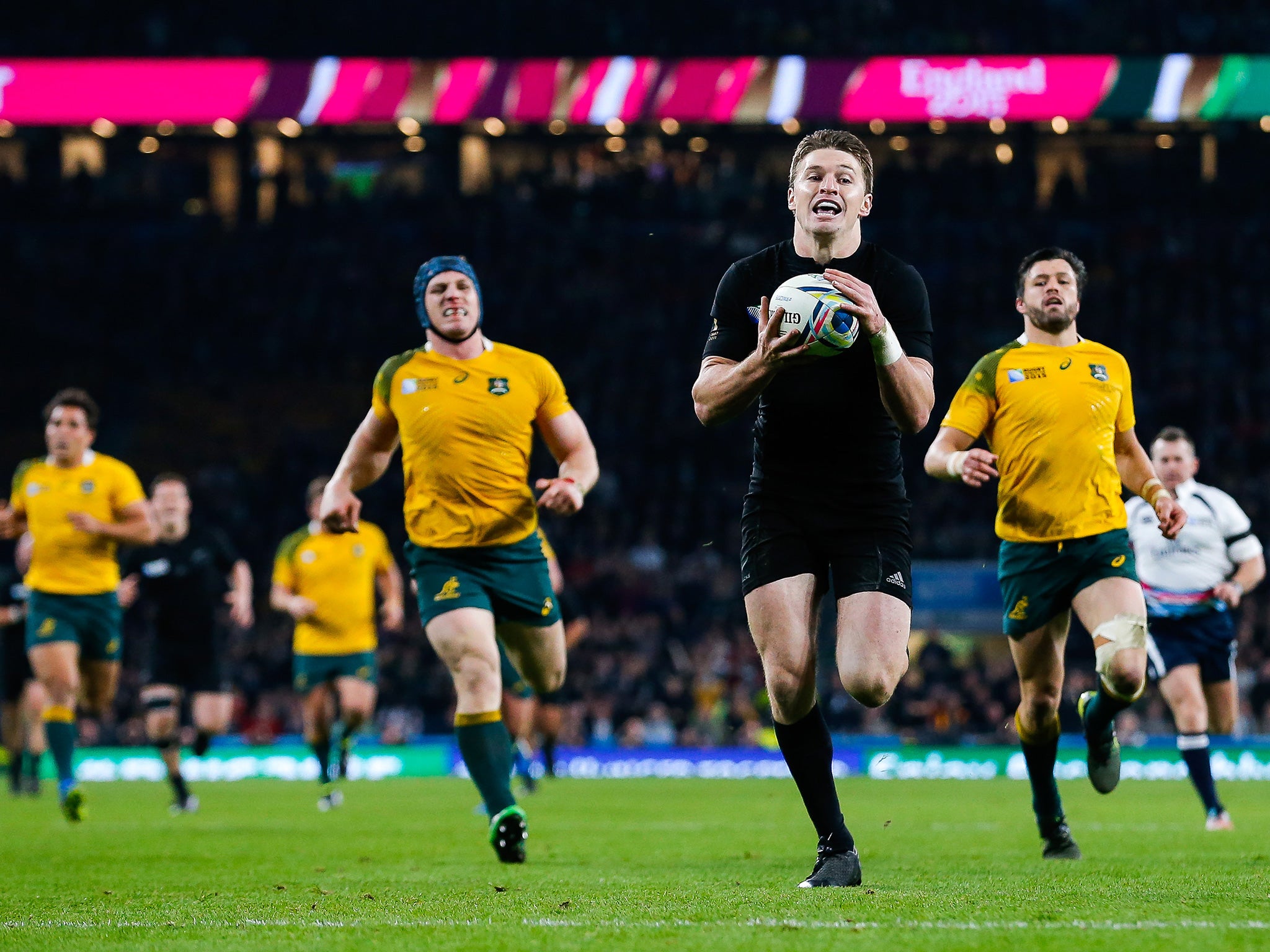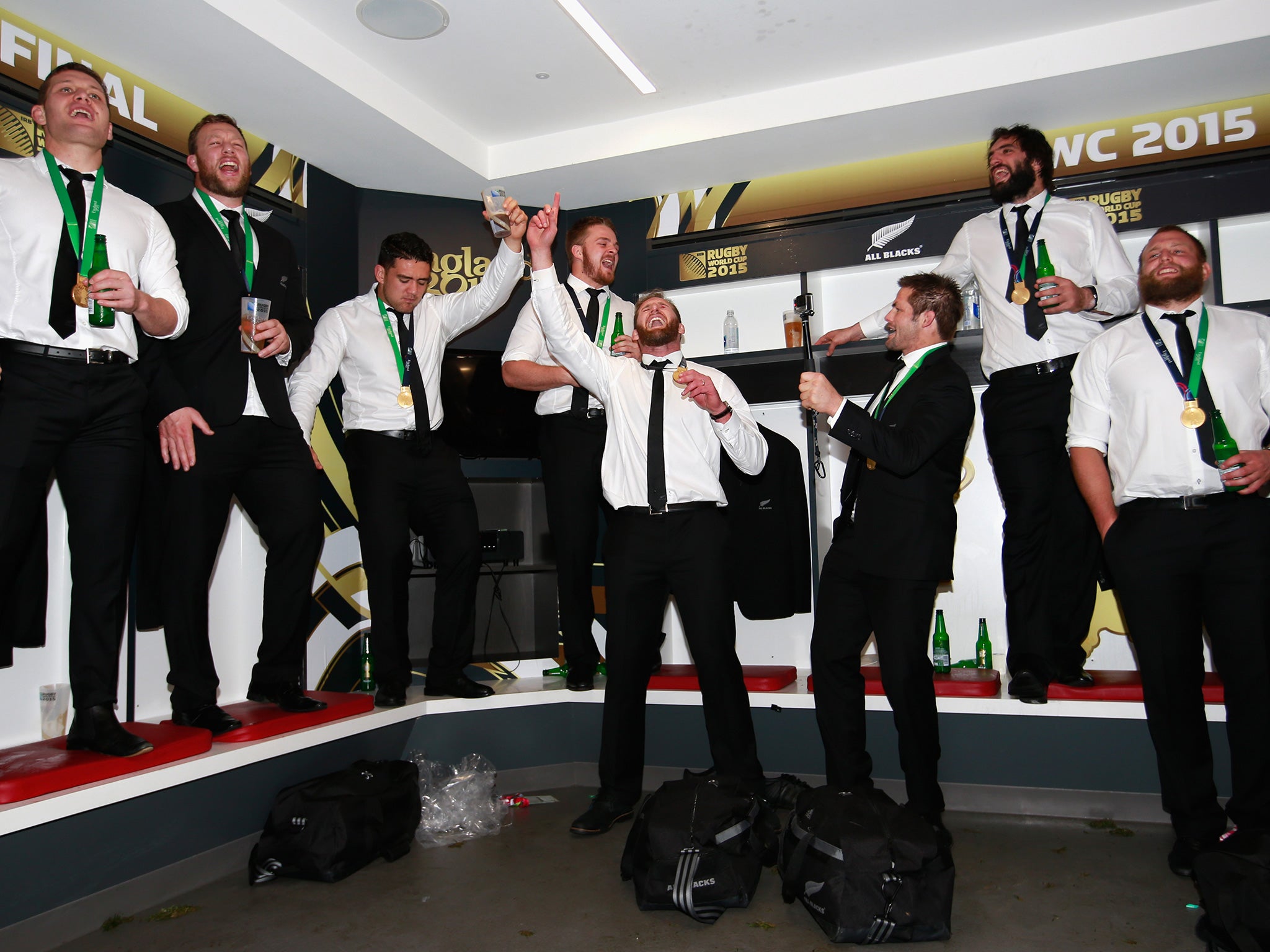Rugby World Cup 2015: Daniel Carter, the cool assassin, finally gains legend status
All Blacks No 10 the standout in a team full of great players

Your support helps us to tell the story
From reproductive rights to climate change to Big Tech, The Independent is on the ground when the story is developing. Whether it's investigating the financials of Elon Musk's pro-Trump PAC or producing our latest documentary, 'The A Word', which shines a light on the American women fighting for reproductive rights, we know how important it is to parse out the facts from the messaging.
At such a critical moment in US history, we need reporters on the ground. Your donation allows us to keep sending journalists to speak to both sides of the story.
The Independent is trusted by Americans across the entire political spectrum. And unlike many other quality news outlets, we choose not to lock Americans out of our reporting and analysis with paywalls. We believe quality journalism should be available to everyone, paid for by those who can afford it.
Your support makes all the difference.“We’re not the big, bad ogres some people think we are,” said the All Black coach Steve Hansen, casting his eye over the vastness of the sporting landscape from an altitude higher than any previously reached by an international rugby team. “I actually believe we’re people with good values, that we’re not bad people to be around. We’re just normal blokes who happen to play rugby pretty well.”
Had Hansen suddenly developed a Uriah Heep complex? Had he already consumed too much of whatever it is that passes for beer in the minds of the New Zealand drinking community?
In describing Richie McCaw, Daniel Carter, Conrad Smith and Brodie Retallick as “normal blokes”, he stretched the definition of the n-word beyond the limits of elasticity. As for the phrase “pretty well”… that did not even begin to fit. These All Blacks play rugby phenomenally well, to put it at its very least, and have been doing so for years.
Their 34-17 victory in Saturday’s unusually free-scoring showpiece – the first World Cup final to produce five tries; the first to break the 50-point barrier – was the ultimate in fire-and-ice rugby. Their lineout routines were so hot you could have fried eggs on them, while Carter stayed so ridiculously cool, you needed to wrap yourself in a fur coat just to watch him from the stand.
Everything comes back to Carter, the man who had been denied his due when the All Blacks won a second World Cup on home soil in 2011 and was, therefore, the emotional centrepiece when the New Zealanders travelled here in pursuit of an unprecedented third title.
He contributed 19 points with the boot, but that bald statistic fails to tell the story. If his 40-metre drop goal off the back foot midway through the final quarter, shortly after the Wallabies had closed to within a score, was a violent assault on the Australian spirit, his subsequent penalty from halfway was nothing short of murderous – the act of a natural-born finisher.
It was as if the stage had been specially prepared for him, but the truth is somewhat different. Beset by injury, he had seen the younger, more impishly confident Aaron Cruden establish himself as the All Blacks’ playmaker-in-chief, and it was only when Cruden broke down with orthopaedic problems of his own that the New Zealand management knew for sure Carter would be the man carrying the weight of responsibility.

“Had Aaron stayed fit and in form, it would have been a challenging situation for us,” acknowledged Ian Foster, the assistant coach, yesterday. “If I had to guess I’d say we’d have ended up with the same outcome at No 10, but it would have been a little more complicated.
“The key moment for Daniel was the game against the Wallabies in Auckland in August. We put him under some pressure to play well, because Australia had beaten us in Sydney and we hadn’t performed. When that happens you have to lift your key drivers, and I’m happy to say that Dan responded.” The rest, as they say, is history.
McCaw, resolute as ever in refusing to confirm the retirement anticipated by the world and his maiden aunt ever since he set foot in these islands almost two months ago, had an interesting take on events at Twickenham. In his view, the All Blacks had been pushed harder by France in the 2011 final – a one-point victory for a New Zealand team paralysed by paranoia after almost a quarter of a century of World Cup failure – than by the Wallabies, for all their attacking gifts.
This seemed a trifle hard on the Australians who, for a few captivating minutes either side of the hour mark, seemed capable of overturning a 21-3 deficit and going on to win the thing. But then, the Wallabies had it hard every which way. They lost two influential players, the lock Kane Douglas and the centre Matt Giteau, to early injuries and received precious few favours from the referee Nigel Owens, who missed clear and obvious transgressions in the build-up to important New Zealand scores – a forward pass here, an accidental offside there – and failed to penalise Jerome Kaino when the silver-ferned flanker inflicted a throat-high hit on the magnificent David Pocock.
But McCaw’s summing-up, impressively articulate when set in the context of a personal celebration that had continued until 4am, said a good deal about the strength of character running through his exceptional team. “When I look back to 2007, when we were knocked out in the quarter-finals, I see one of the most talented squads I’ve ever been involved with – and one that failed to fulfil its potential,” he said. “This squad of 31 players, which became 32 because of injury, came here to do a job, and did it.
“When things got a little tight against the Wallabies, there was this feeling of calmness. Anything can happen in knockout rugby but we knew that it would take a good side to beat us. I think we expected to perform at our best – that we had more control. To win on that basis is a very satisfying thing.”
Even if McCaw sticks around for a while – a faint possibility, but no more than that – these formidable All Blacks are about to become just a little less menacing, especially in the midfield department, where they have been so much better than everyone else for so long. Carter, Smith and Ma’a Nonu are all heading for France, lured by the power of the euro, so New Zealand must seek fresh answers at 10, 12 and 13.
They’ll find those answers. They always do. As Hansen said: “I thought Spanish football was a great model when they were winning everything, but then they threw it away. Something happened there. People say success is cyclical, but it’s only that if you get comfortable and stop working hard. At some point quite soon, we’ll ask ourselves where we go next. We’ll pick it apart and try to find some inconvenient facts that we don’t like admitting to ourselves – facts that winning glosses over.” Relentless. Utterly relentless.
Join our commenting forum
Join thought-provoking conversations, follow other Independent readers and see their replies
Comments